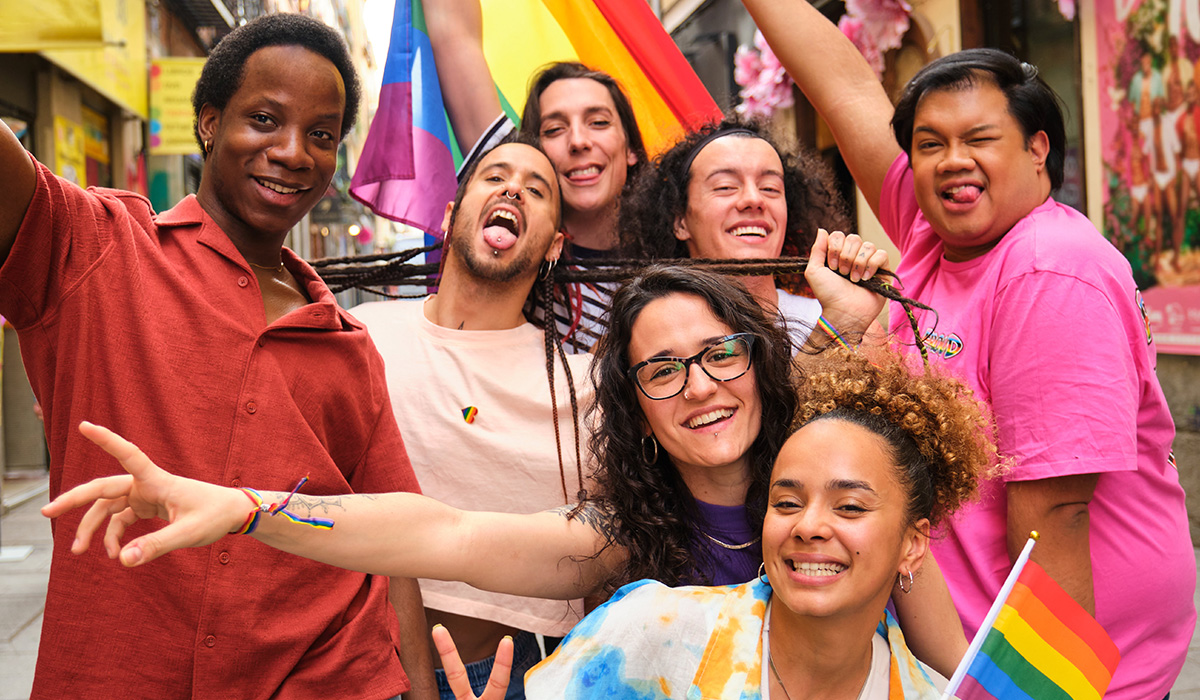
Nurturing Mental Wellbeing: Strategies for LGBTQ+ Individuals
The journey of navigating mental health within the LGBTQ+ community is marked by unique challenges, including societal stigmas, discrimination, and the process of self-discovery. It is crucial to recognise the importance of mental well-being and to cultivate coping strategies that empower individuals to thrive authentically. In this comprehensive guide, we explore various aspects of coping with mental health in the LGBTQ+ community and offer practical strategies for fostering resilience and support.
Understanding the Landscape:
- Societal Stigma and Discrimination: LGBTQ+ individuals often face societal stigmas and discrimination that can contribute to mental health challenges. These challenges may include isolation, anxiety, depression, and the fear of rejection based on one’s sexual orientation or gender identity.
- Identity Exploration: The journey of self-discovery and acceptance, while empowering, can also be emotionally complex and lead to internal conflicts. Understanding and embracing one’s sexual orientation or gender identity is an ongoing process that may impact mental well-being.
- Family and Social Dynamics: Rejection or lack of acceptance from family, friends, or communities can result in feelings of alienation and isolation. Building supportive networks becomes crucial in navigating these challenges.
Coping Strategies:
- Build a Supportive Network: Surround yourself with a supportive network of friends, family, or chosen family members who affirm and accept your identity. Seek out LGBTQ+ support groups, both in-person and online, where you can connect with individuals who share similar experiences.
- Seek LGBTQ+ Affirmative Mental Health Professionals: Collaborate with mental health professionals who are knowledgeable and affirming of LGBTQ+ identities. Therapists, counsellors, and psychiatrists who specialise in LGBTQ+ issues can provide tailored support.
- Prioritise Self-Care: Incorporate self-care practices into your routine, such as mindfulness exercises, relaxation techniques, or activities that bring joy and fulfillment. Prioritising self-care helps build resilience in the face of external stressors.
- Advocate for Your Mental Health: Be an advocate for your mental health by openly communicating with healthcare providers about your unique experiences and needs. If a healthcare professional is not affirming, seek out alternative LGBTQ+-friendly providers.
- Educate Yourself: Educate yourself about mental health, LGBTQ+ issues, and the intersection between the two. Understanding your experiences and the broader context empowers you to navigate challenges more effectively.
- Access Crisis Helplines: Utilise crisis helplines, such as The Trevor Project for LGBTQ+ youth or local mental health hotlines, for immediate support during times of crisis or emotional distress.
- Celebrate Resilience: Recognise and celebrate your resilience in facing the unique challenges related to your identity. Acknowledge the strength that comes from embracing and being true to yourself.
- Engage with LGBTQ+ Organisations: Get involved with LGBTQ+ organisations and events that promote community support, advocacy, and empowerment. Contributing to community initiatives fosters a sense of belonging and purpose.
- Establish Healthy Boundaries: Set and communicate healthy boundaries to protect your mental and emotional well-being. Surround yourself with individuals who respect and honour your boundaries.
- Positive Representation: Consume media and literature that includes positive and diverse representations of LGBTQ+ individuals. Positive representation fosters a sense of identity, belonging, and acceptance.
- Connect with LGBTQ+ History and Pride: Learning about LGBTQ+ history and engaging in Pride events can install a sense of community, pride, and connection to a broader movement. Understanding the resilience of those who came before can provide inspiration and strength.
Conclusion:
Coping with mental health within the LGBTQ+ community requires a multifaceted and personalised approach. By building a supportive network, accessing affirmative mental health professionals, prioritising self-care, and engaging with LGBTQ+ organisations, individuals can navigate challenges and foster resilience. Celebrating one’s identity, advocating for mental health needs, and connecting with positive representation contribute to a holistic approach to well-being. The journey is ongoing, and as the LGBTQ+ community continues to thrive, so too does the importance of nurturing mental health with compassion, understanding, and resilience.
